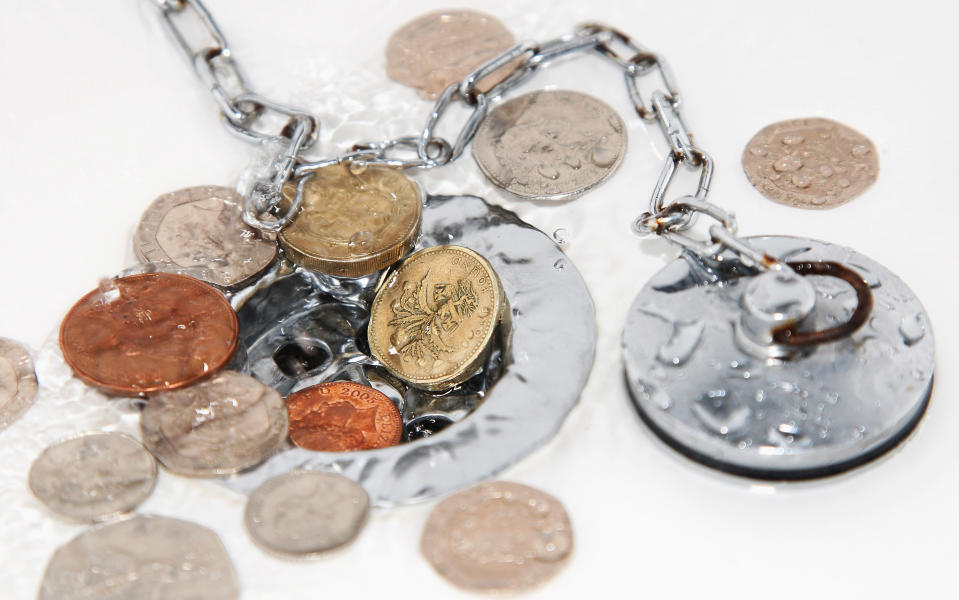How to profit from rip-off Britain after Brexit

It may or may not be because we have been described as a “nation of shopkeepers” but the concept of ‘rip-off Britain’ is one that seems to be flourishing, well into the 21st century and the online age.
In fact, while the internet has delivered price discovery and deflation when consumers can (go)compare, the rip off continues where competition or the free market does not operate.
As well as utility and telecoms bills rising by more than inflation, the ordinary person in the street has been hit by new phenomena such as shrinkflation, and offers in supermarkets and beyond, where even Einstein would be baffled as to the qualifying conditions.
MORE: Smaller bags and cheeky fees: The not-so-secret tactics airlines use to get your money
When you add in the multi-million pound fat cat salaries and bonuses earned by many of the bosses of the companies that allegedly rip us off, many might feel that the situation is not only painful on the wallet, but grossly unfair. They may also despair as watchdogs and regulators appear to be on the side of big business, rather than the ‘little guy’.
However, all is not lost. One can actually profit, and with relatively little cash, from the profiteering of many of those who provide us with the goods and services we cannot be without. “Don’t get mad, get even”, is the winning phrase to adhere to here. All you need to do is consider investing in the companies who are making money from the status quo.
Perhaps the best illustration of this whole concept of profiting is the recent history of British Gas owner Centrica. Last month it was reported that profit margins at the big six energy companies are at their highest on record and it is the leader.
MORE: British Gas price hike: How to get more bang for your buck
This state of affairs not only helps out the management at such firms, it also benefits the shareholders. Therefore in the wake of Centrica raising its prices in August by an eye watering 12.5% – five times the rate of inflation, this is certainly a very good time to be a shareholder hoovering up a 6% dividend yield. Such a rate of return should be enough to comfort even the most financially embarrassed JAM (just about managing) household.

Another area of pain for the consumer is transport, with public transport being a particular bugbear. Not only are there the leaves on the line and strikes, but also the above inflation fare rises – something which makes a mockery of being a serious alternative to the motor car.
Indeed, fares for 2018 are set to rise by their highest amount in five years at 3.6%. In the wake of such news, what better way to offset the injustice by buying shares in rail and bus operator Stagecoach, where recent share price weakness means that the stock is yielding a chunky 7%.
MORE: Brexit has become a phoney war – and that’s dangerous
Although public transport and utility bills are perhaps the most obvious and well known rip offs that the British public suffer, there is one that is arguably even worse but which we seem to have a blind spot for – motor insurance. This is perhaps because the car is a tax and fine magnet anyway, so drivers have been softened up to pay through the nose.
Enter Admiral Group, which even after the recent share price drop sees its stock up by more than a third on where it was a couple of years ago. At the same time the dividend yield of 2.75% is enough to console most shareholders looking to gain via the suffering of others.
MORE: Brexit: What you should consider when investing in UK equities
If motor insurance is a relatively obscure bad deal for the consumer, almost all of us are aware that tourists are perennially seen as being fair game as far as the rip off merchants are concerned.
The traveller is of course painfully hurt just changing currency, and then once they arrive at their destination what is left in their pockets is extracted all too quickly. There may be no one better in the field of such entrepreneurial activities than Madame Tussauds owner Merlin Entertainments.
Helped along by the weakness in sterling since the Brexit vote, those looking for a proxy on not only domestic currency weakness, but also a pricing power play, have a solid looking contender.
Zak Mir is is the author of chart topping books, including 101 Charts For Trading Success and 49 Golden Rules of Technical Analysis.
Disclaimer: The content on this page does not constitute financial advice and is provided for general information purposes only. Nothing on this page should be regarded as an offer to conduct investment business or to buy/sell any investment.

 Yahoo Finance
Yahoo Finance 
